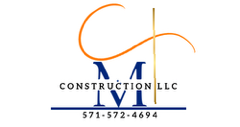Choosing the Right Siding in Coastal Virginia: Types, Pros & Cons
Living in Coastal Virginia—especially near places like the Occoquan Bay—offers scenic views and salty breezes, but it also brings unique challenges for your home’s exterior. Wind, humidity, salt air, and driving rain can take a toll on your siding faster than you might expect.
6/11/20253 min read


Choosing the Right Siding in Coastal Virginia: Types, Pros & Cons
Living in Coastal Virginia—especially near places like the Occoquan Bay—offers scenic views and salty breezes, but it also brings unique challenges for your home’s exterior. Wind, humidity, salt air, and driving rain can take a toll on your siding faster than you might expect.
Choosing the right siding for your home isn’t just about looks—it’s about performance, durability, and long-term protection. Let’s explore the most common types of siding used in our region and break down the pros and cons of each.
1. Vinyl Siding
Vinyl siding remains a popular option for homeowners across Virginia thanks to its affordability and low maintenance.
✅ Pros:
Cost-effective and widely available
Resistant to rot, insects, and moisture
Comes in a wide variety of colors and styles
Easy to clean with just a hose and soft brush
❌ Cons:
Can become brittle and crack over time, especially with temperature fluctuations
Prone to warping or blowing off in high winds if not properly installed
Doesn’t offer much insulation on its own
Best for: Budget-conscious homeowners who want a clean look with minimal upkeep—especially if wind exposure is moderate.
2. Fiber Cement Siding (e.g., Hardie Board)
This durable material is made from cement, sand, and cellulose fibers. It’s designed to mimic the look of wood, stucco, or masonry but with far better durability.
✅ Pros:
Extremely resistant to moisture, insects, and fire
Holds up well in high-humidity and salty environments
Great for coastal areas prone to storms
Can be painted and customized
❌ Cons:
Heavier and more expensive to install than vinyl
Requires repainting every 10–15 years
Can absorb water if not installed or sealed correctly
Best for: Homeowners near the coast who want long-term performance and a high-end look without the maintenance of real wood.
3. Engineered Wood Siding
Engineered wood offers the appearance of traditional wood siding but is made with treated wood strands and resins for added strength.
✅ Pros:
More moisture-resistant than traditional wood
Lighter and easier to install than fiber cement
Natural wood look at a lower cost than cedar
Impact-resistant
❌ Cons:
Still vulnerable to moisture if not properly sealed
Requires painting or sealing every few years
May not last as long in extreme coastal conditions
Best for: Homes further inland or those looking for the charm of wood with slightly less maintenance.
4. Aluminum Siding
Aluminum siding isn’t as common as it once was, but it still offers some unique advantages—especially in salty, storm-prone regions.
✅ Pros:
Rust-resistant and immune to rot or insect damage
Fire-resistant and non-combustible
Won’t warp or swell with humidity
Lightweight and recyclable
❌ Cons:
Easily dented by hail or debris
Can fade and chalk over time in direct sunlight
Limited style and color options compared to other materials
Best for: Coastal homes seeking a durable, fire- and water-resistant solution that holds up to salty air.
5. Traditional Wood Siding
While beautiful and timeless, wood siding can be a challenge in the coastal climate of Virginia.
✅ Pros:
Unmatched natural beauty and curb appeal
Customizable with stains or paint
Insulates well
❌ Cons:
High maintenance: needs regular sealing or staining
Vulnerable to rot, insects, and mold in humid areas
Not ideal near salty air unless pressure-treated or specially sealed
Best for: Homeowners who prioritize aesthetics and are prepared for ongoing maintenance, ideally in less-exposed areas or with covered exterior walls.
So, What’s the Best Siding for Coastal Virginia?
If you live near Occoquan Bay or anywhere along Virginia’s coastline, your siding must stand up to:
High humidity
Salt air
Heavy rain
Occasional high winds
Top choices:
Fiber cement offers the best overall protection and longevity for coastal climates
Vinyl is a solid budget-friendly option with minimal upkeep
Aluminum holds up well against salt air but may lack curb appeal
Engineered wood is a good compromise for those who want a wood-like look without as much risk
Let’s Talk About Your Siding Options
At MT Construction, LLC, we’ve helped hundreds of homeowners in Woodbridge, Dumfries, and throughout the Coastal Virginia region protect and enhance their homes with siding that fits both their budget and lifestyle.
We offer free consultations, expert installation, and honest advice on what works best for your property and your environment.
📞 Call us at (571) 572-4694
📧 Email: info@mtconstructionllc.com
Let us help you choose siding that looks great—and stands up to whatever the Virginia coast throws your way.
Info@MTConstructionllc.com
(571)572-4694
© 2025. All rights reserved.


